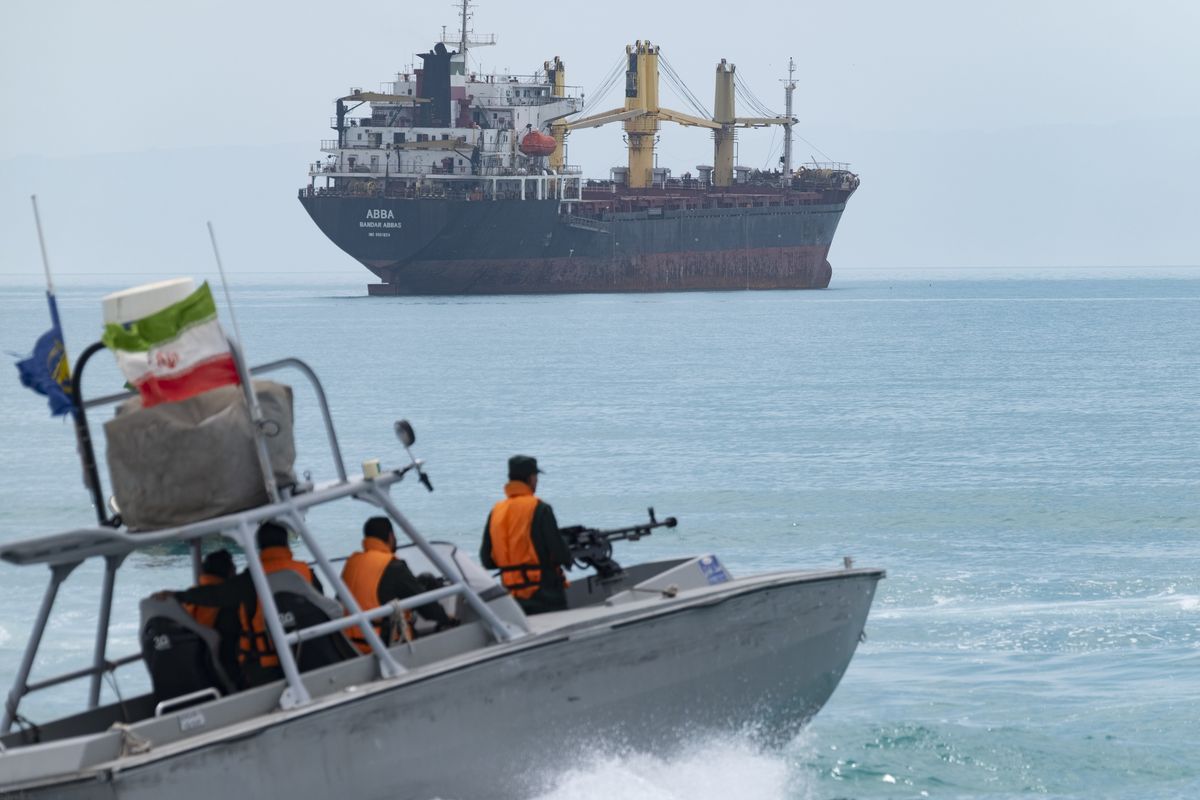Rather than take a hard look at past failures and where to go from here, Middle East “experts” are using the Six-Day War’s 50th anniversary to regurgitate old talking points, cast blame on predictably ideological lines and propose meaningless paths back to the negotiating table.
In reality, there will be no peace between Israelis and Palestinians within this generation because neither side is willing to make the required strategic concessions, and both sides are bereft of leaders who can drag their people there. Pretending otherwise is not just futile but exacerbates the situation.
There was a time in the arc of the past century of conflict when Israel held the moral high ground; when it fought wars—even preemptive ones like the Six-Day War—for genuine self-defense and the preservation of the Jewish people. But in the Bibi Netanyahu years, during which the Israeli Defense Forces and the political establishment spend so much of their collective resources protecting the special interests of Israel’s colonial project in the West Bank, those days are over.
Israel is not prepared to part from even the Arab parts of East Jerusalem that would be a Palestinian capital, or to provide the Palestinians with enough territorial contiguity to form a state. Those are legitimate, fundamental needs for the Palestinians.
On the other side, there has never been – there may never be – a Palestinian majority willing to accept Israel as a Jewish state in the midst of the Arab world. No Palestinian leader is willing to tell his people in clear terms that the refugees (liberally classified to include even the decedents of the people who fled war in 1948-1949 and 1967) are not going back to a “home” the vast majority of them never knew.
The secular Fatah faction led by Mahmoud Abbas may look reasonable next to the explicitly rejectionist Islamists of Hamas, but Fatah’s existential rejection of Israel is implicit in the denial of the legitimate, fundamental Israeli needs that Fatah will not accept.
Outsiders are no better. In obsessing over the altar of negotiations, the assorted foreign governments involved in the peace process have insisted on taking Israelis and Palestinians down road after road of peace talks that only served to intensify resentments.
Meanwhile, in singling out Israel for obscenely disproportionate criticism, the international left wing helped harden the Palestinians’ already unrealistic negotiating positions and avoid accepting any accountability for the self-destructive decision-making each Palestinian generation took for the past 100 years.
The same can be said of Washington’s steadfast backing of Jerusalem, despite the ongoing expansion of the West Bank settlements which is day by day eating away at the viability of the two-state solution. The last administration to put a price on Israel’s “settlements” was led by George H.W. Bush, and the failures of Bill Clinton, George W. Bush, and Barack Obama over a quarter-century since then are manifest.
The overriding issue 50 years after the Six-Day War remade the Middle East is that Israelis and Palestinians are not interested in peace, and that both sets of leaders perversely benefit from the forever process of trying to get there.
In wanting peace more than the conflicting parties do, outside interests make the situation worse. In the predictable absence of progress, the right blames Palestinians, the left blames Israel, and every policy maker whoever set foot in the Levant thinks that he or she has a magic formula for making peace that somehow eluded a century’s worth of statesmen and women.
Peace is not on the table and the Israelis and Palestinians can come to no meaningful interim agreements with each other, with trust between the parties at 25-year lows. Accepting that is the sine qua non for making progress.
The alternatives to be explored start with the assumption that the two-state solution remains the only stable, long-term paradigm – the only other alternative being the total domination by one side over the other. Thus, if two states are not achievable today, then policy makers must take actions now that ensure their viability in the future.
The strategy to get there should be “parallel unilateralism.”
Washington and other like-minded parties should negotiate unilateral moves with each side, offering what Israelis and Palestinians each desire most in exchange for meaningful concessions that move their positions closer to the two-state paradigm.
To be clear, these deals would be between the U.S. and Israel and the U.S. and Palestinians separately. This is not Washington moderating a deal between the conflicting parties.
Where to begin?
For Israel, the fundamental need is, and always has been, robust security to ensure its survival in an exceedingly hostile neighborhood. Rather than continue the policy of providing the IDF a “qualitative edge” over the armies of its neighbors, the United States should make Israel a major non-NATO ally and guarantee that the U.S. military will defend Israel in case of attack by any state or other major adversary, such as Hezbollah. It should also agree to vigorously defend Israel in the United Nations and against civil society actions like the Boycott, Divestment and Sanction movement, while moving the U.S. Embassy to West Jerusalem.
In exchange, Israel should withdraw all the settlers living outside of the three main settlement blocks that will be part of Israel in perpetuity. In the remaining parts of the West Bank, Israel should give up all civil control it currently exerts over Palestinians.
For the Palestinians, the fundamental need is, and always has been, self-determination. Washington should recognize the state of Palestine and set up a full embassy in East Jerusalem. It should then lead an international effort to develop the new state’s human resources, infrastructure and economy. (This would also have the effect of making Palestinian-leaning governments in Europe and the Gulf finally put their money where their mouths are in supporting Palestinians rather than simply criticizing Israel.)
In exchange, the Palestinians must recognize the Jewish character of Israel and renounce the right of return for the refugees and their decedents to Israel (they will be welcome in the new state of Palestine).
These mutual unilateral moves will not end the conflict. The Israeli army will still position itself in key areas of the West Bank to prevent the territory from falling into the hands of Hamas, as Gaza did, although much of the daily friction will be eliminated once the IDF’s chief duty in the West Bank is no longer protecting the settlers. Land swaps and the contours of a shared Jerusalem will also remain outstanding issues to settle.
However, ending the conflict now is not the point. The full withdrawal of the IDF and final borders are issues to be solved in the future, when the parties are genuinely ready to compromise.
In the meantime, the viability of the two-state solution is preserved and the breathing room the Palestinians are given in the West Bank to develop themselves and their state can hopefully allow the next generation of Israelis and Palestinians to grow up with far less blood spilled and far less resentment of each other, leading to the day – even if it is 25 years in the future – when meaningful negotiations can resume.
Even these steps are not easy, but by pursuing individual deals with Palestinians and Israelis, this strategy removes the need for the conflicting sides to trust each other. It also creates a competitive atmosphere between the two parties in which they will each be motivated to cut deals with Washington so the other party will not seize the advantage.
Fifty years is long enough to fail at peace. It’s time to try something new.













